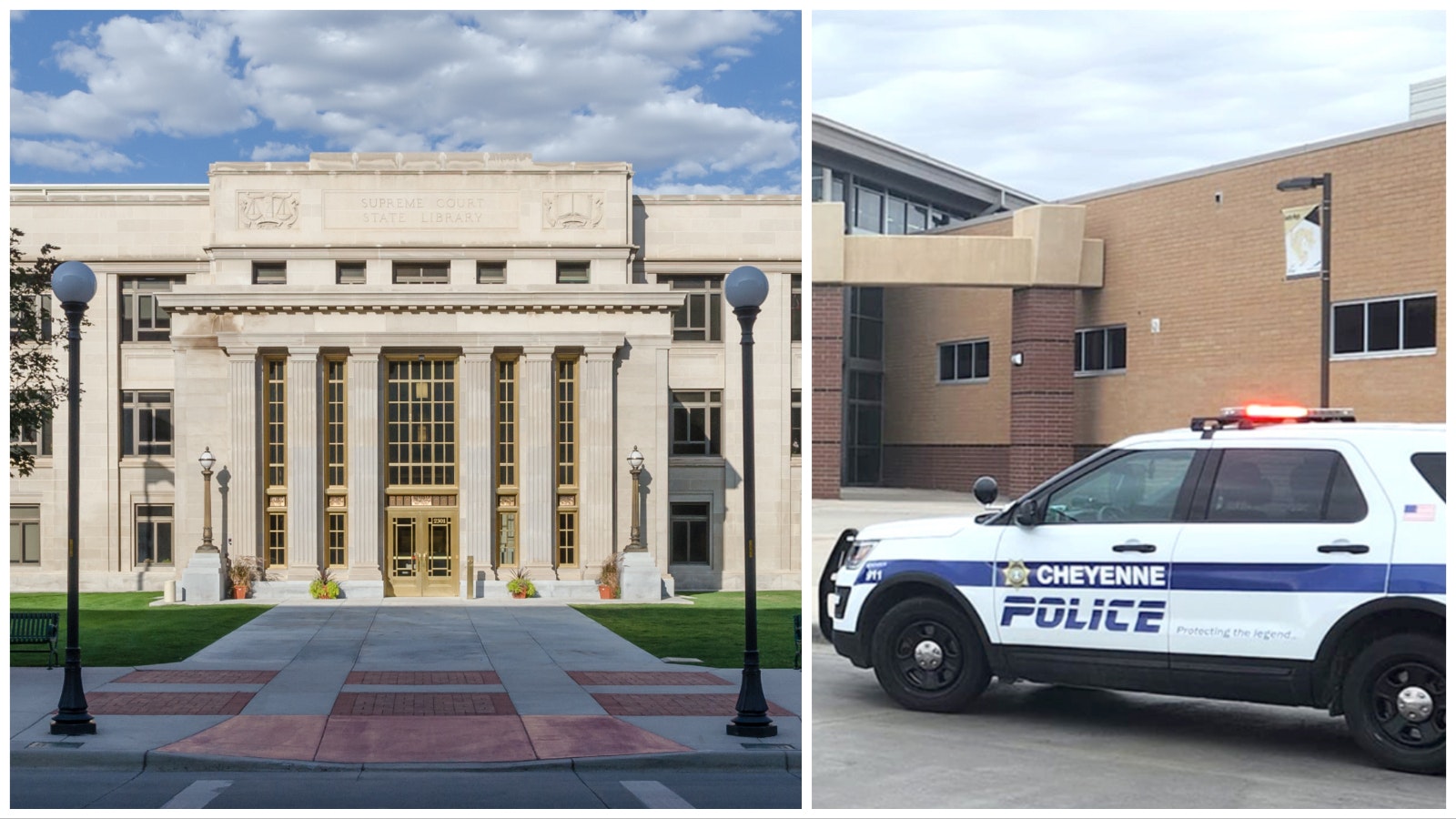Cheyenne police entered a man’s home unlawfully to arrest him, the Wyoming Supreme Court has ruled in overturning his conviction.
The high court in its Monday order reversed Myron Martize Woods’ 2021 Cheyenne Circuit Court conviction of interference with a peace officer for fighting officers who entered his home unlawfully to arrest him.
The conviction stemmed from Feb. 13, 2020, when police investigated a dispute between Woods and his ex-girlfriend over the care of their son.
Woods’ ex-girlfriend said he had grabbed her neck, but a jury later acquitted Woods on that domestic battery charge.
Cheyenne Police Department officers went to Woods’ home and confronted him across the threshold of his front door that evening, trying to get him to come out.
The Fight
Woods’ pregnant wife stood just inside the door between Woods and police officers.
Officer Logan Warren reached across the threshold of the home to grab Woods’ wrist and pull him out, the court’s order says.
Woods pulled his hand away from Warren, “and the officers entered the house, pushing through (Woods’ wife) to arrest Mr. Woods,” reads the order. “The officers did not inform Mr. Woods he was under arrest until they had fully entered the house and repeatedly told him to put his hands behind his back.”
The officers struggled with Woods for more than two minutes, then handcuffed him and took him out of the house, the order says.
Fourth Amendment
The police acted unlawfully, the state Supreme Court concluded.
Wyoming’s law against interfering with police officers only applies if officers are engaged in the lawful performance of their duties.
“We conclude the officers were not ‘engaged in the lawful performance’ of their official duties when they entered the home without a warrant,” reads the high court’s order.
Police can enter a home without a warrant under certain exceptions, such as to continue a hot pursuit, to prevent the imminent destruction of evidence, to render emergency assistance to someone in the home or to protect people from harm. But officers’ actions in this case don’t qualify under these exceptions, the order says.
“Mr. Woods did not surrender his reasonable expectation of privacy when his wife answered a knock on the closed door of their home,” says the court’s order. “Mr. Woods’ conviction for misdemeanor interference with a peace officer cannot stand.”
Noting that Wood’s case also is involved in pending litigation in federal court, the Cheyenne Police Department declined to comment.
Elsewhere In Court
Woods is suing the city of Cheyenne, the Cheyenne Police Department and the three arresting officers in federal court.
He is accusing all the civil defendants of negligence for the actions surrounding and leading to his arrest. He also is accusing them of retaliating against him, alleging that the officers entered his home, fought and arrested him because he asked them what they were doing at his house.
Just Get A Warrant
Gay Woodhouse, a former Wyoming Attorney General, told Cowboy State Daily the state Supreme Court’s ruling could help Woods in his lawsuit, but civil lawsuits have different elements than criminal appeals.
“I’m not sure exactly how they’re going to square up,” said Woodhouse. “It certainly seems like it would help that case as well.”
She said the ruling is well-reasoned and articulated. For example, the order recounts how Warren acknowledged in court that Woods did not have weapons, wasn’t threatening anyone in the home and wasn’t destroying evidence when the intrusion happened.
“I don’t know why they wouldn’t have just gone and gotten a warrant for his arrest,” said Woodhouse. “That would have ended all the discussion and made the entry performing their lawful duties.”





